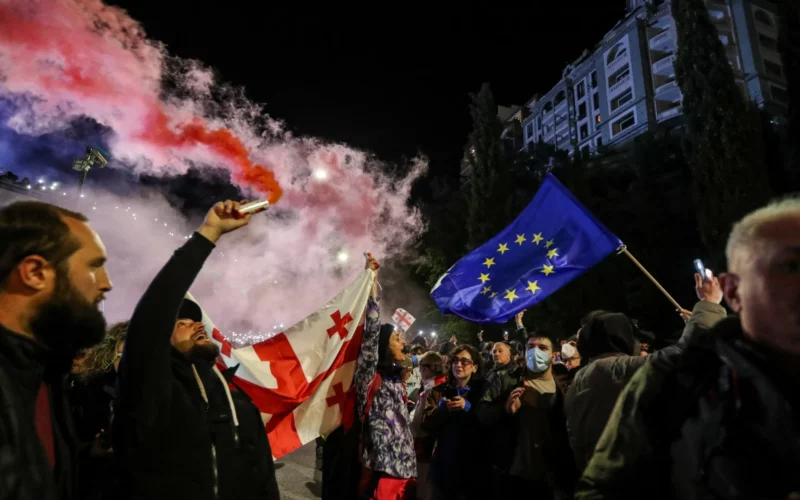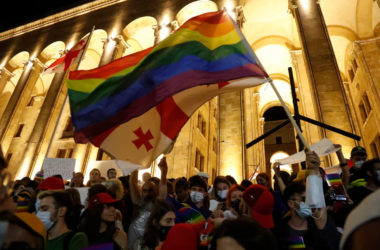Georgian opposition parties have vowed to form a “pro-European” coalition in response to the government’s enactment of the contentious “foreign agents” bill. The new law mandates organizations receiving over 20% of their funding from overseas to register as “agents of foreign influence.”
Parliamentary Speaker Shalva Papuashvili signed the legislation into law on Monday, finalizing a process that has sparked a political crisis in Georgia. The law has faced strong criticism from Western allies and has been condemned by President Salome Zourabichvili, who argues that it hinders Georgia’s aspirations to join the European Union. Critics, including many protestors, claim the governing Georgian Dream party is steering the country closer to Russia. Despite the president’s veto, which was largely symbolic, the Parliament voted last week to override it.
On the same day, AFP reported that President Zourabichvili had successfully persuaded most opposition parties to sign a pro-European policy charter. These parties, preparing for parliamentary elections on October 26, plan to implement extensive electoral, judicial, and law enforcement reforms through an interim multiparty government if they secure a majority. This agenda includes revoking the “foreign agents” law and other legislation considered harmful to Georgia’s European trajectory, with the goal of calling early elections next year.
Critics argue that the new legislation will be used to suppress dissent. It imposes stringent disclosure requirements and fines for organizations that do not comply. Georgian NGOs have announced plans to challenge the law in the constitutional court and intend to submit a case to the European Court of Human Rights. Hundreds of opponents have pledged to disobey the law and support each other in paying fines.
For more than a month, opponents of the bill have staged some of Georgia’s largest protests since its independence from the Soviet Union in 1991. Among the opposition parties to sign the cooperation pledge is the United National Movement, a major pro-Western force in Georgia. “Georgian voters expect the opposition to show unity in the election run-up,” stated Tina Bokuchava, a leader of the United National Movement, to AFP.
The law’s passage comes in a context of widespread Georgian animosity towards Russia, due to its support of the breakaway regions of Abkhazia and South Ossetia and the brief war between the two nations in 2008. Public opinion in Georgia is largely in favor of EU and NATO membership.
The United States has threatened to sanction Georgian officials who supported the bill, while the Georgian government has accused Western nations of blackmail and defended the law as a necessary measure to prevent being drawn into another conflict with Russia.








